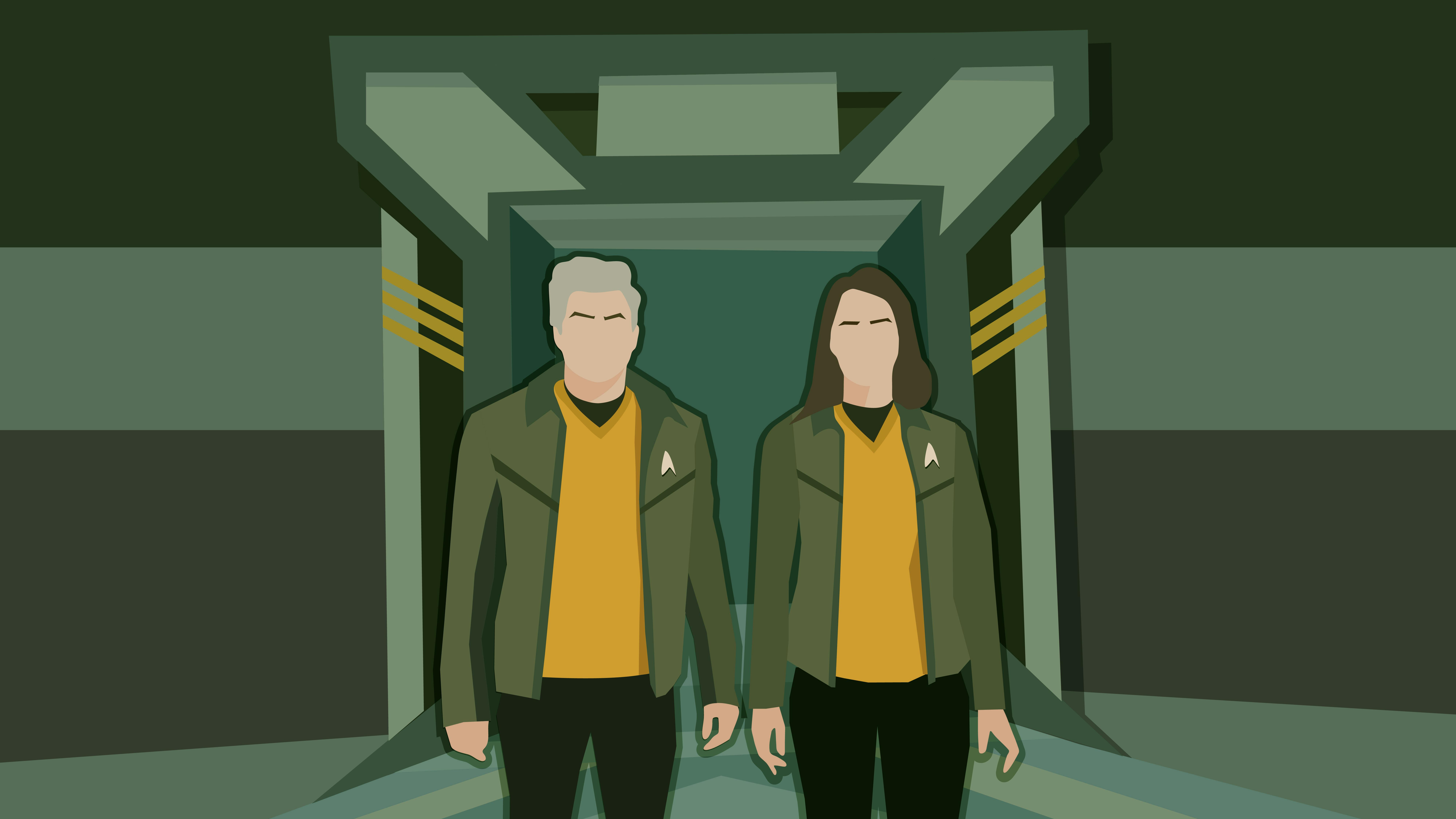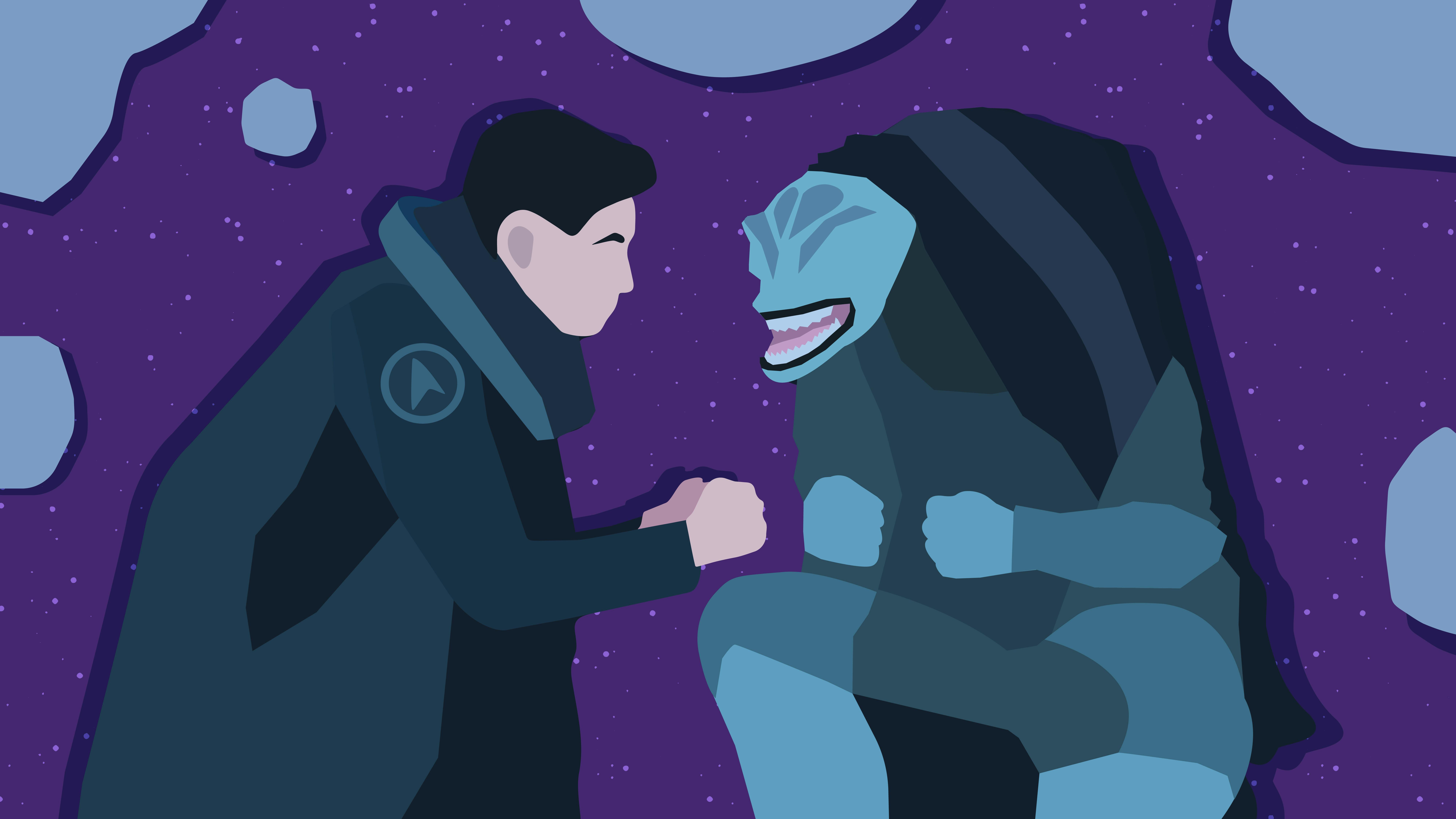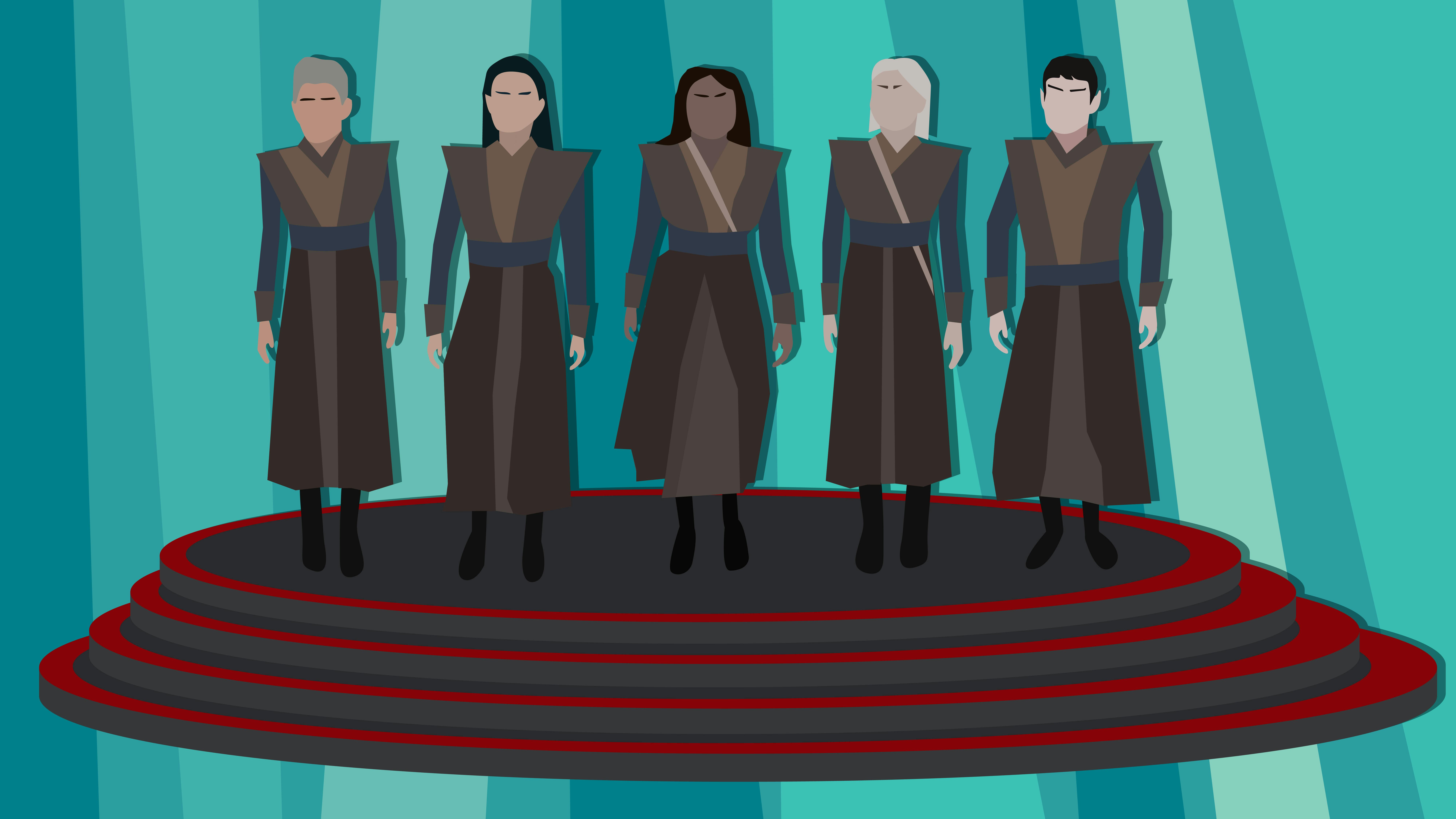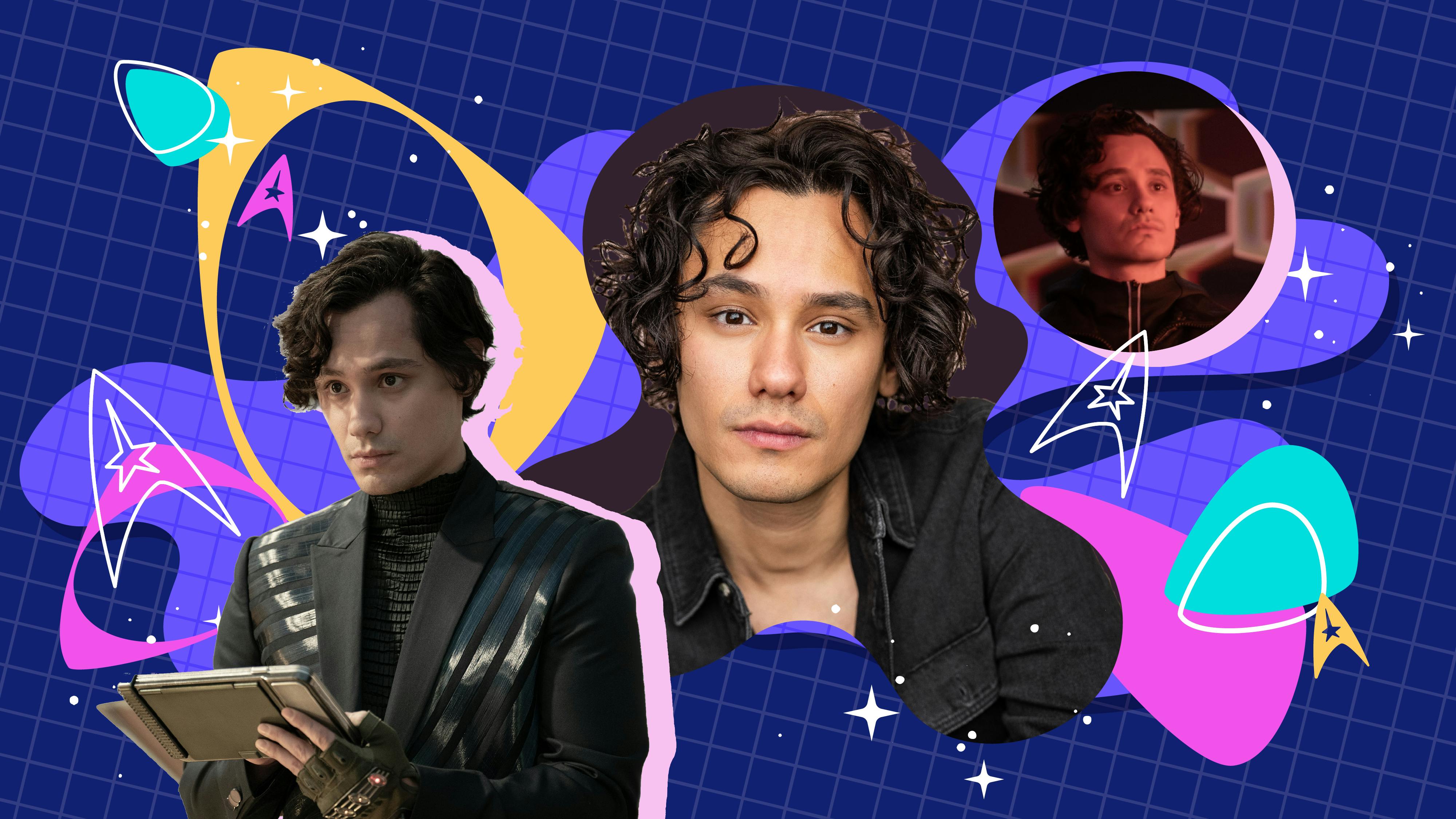Published Mar 29, 2024
Deanna Troi Paved the Way For Those of Us Who Never Felt Like We Belonged
How the ship's counselor helped one fan navigate between cultures.
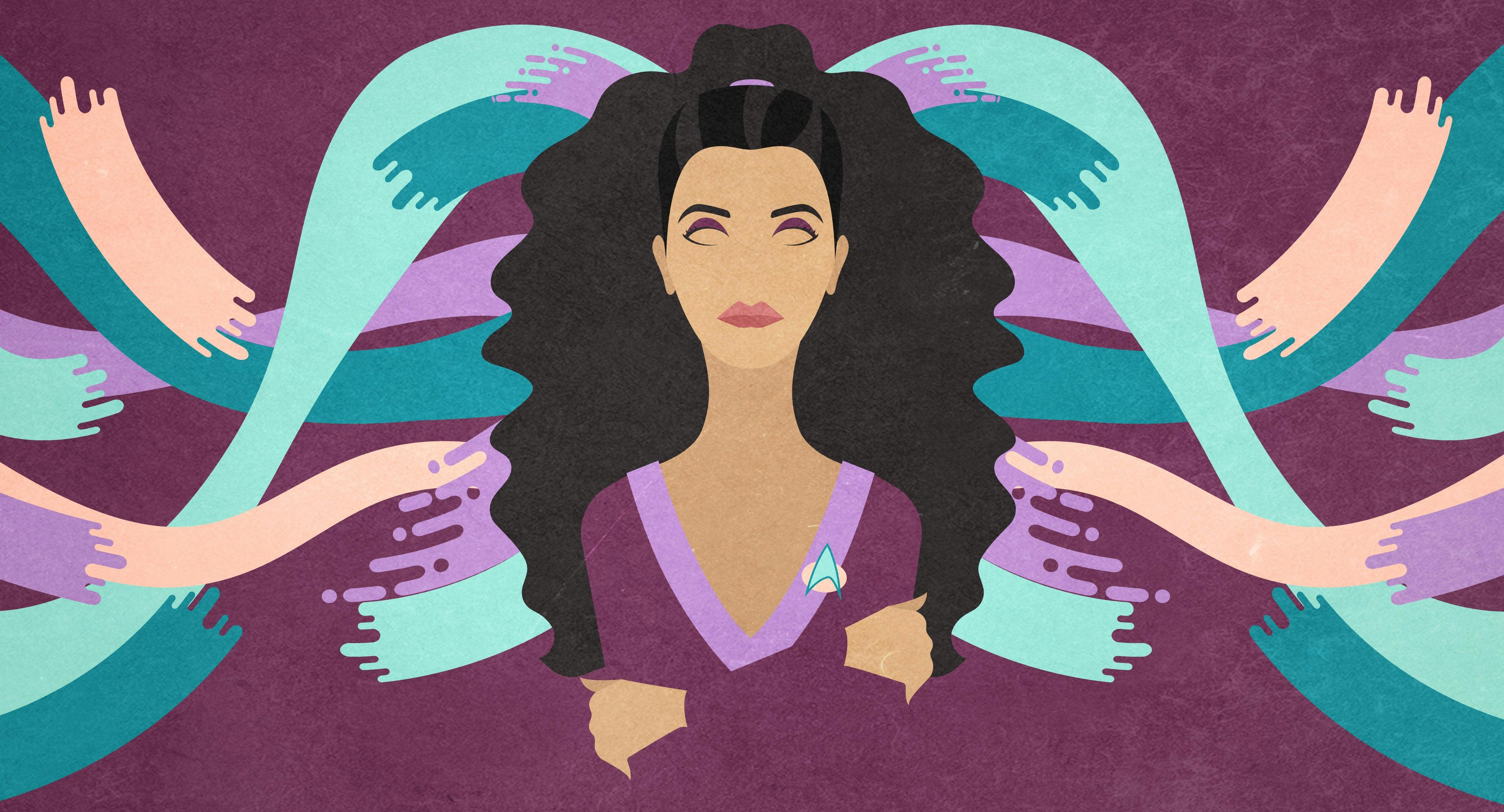
StarTrek.com
When you’re a kid, you assume most people are fundamentally similar. Then one day, you realize this isn’t entirely true.
For me, this day was Halloween, 1988. I proudly wore my pirate costume to school — after watching The Goonies for the hundredth time — where we stuffed our faces with candy (this was the ’80s, candy was a food group back then), and watched scary movies in class (also totally acceptable in the ‘80s). After school, everyone in the neighborhood went trick-or-treating. Pretty typical, right?
What Makes Deanna Troi so Special?
What wasn’t quite so typical was my first pseudo-Greek American Halloween party at my aunt’s house later that day. It consisted of the following — pumpkin decorations painted blue and white like the Greek flag, my grandfather loudly playing Greek folk music in the background while wearing a cape (whether he was dressed as a vampire or a magician is still up for debate), and somewhere, someone was cooking lamb.
Amidst all this, my aunt kept saying, "Triki Triki!" I didn’t figure out until years later that she was actually saying "Trick or Treat," her accent altering the words. It was then that I realized I wasn’t quite like the other kids I knew. It was the first time that my two, very distinct cultures came into contact with one another.
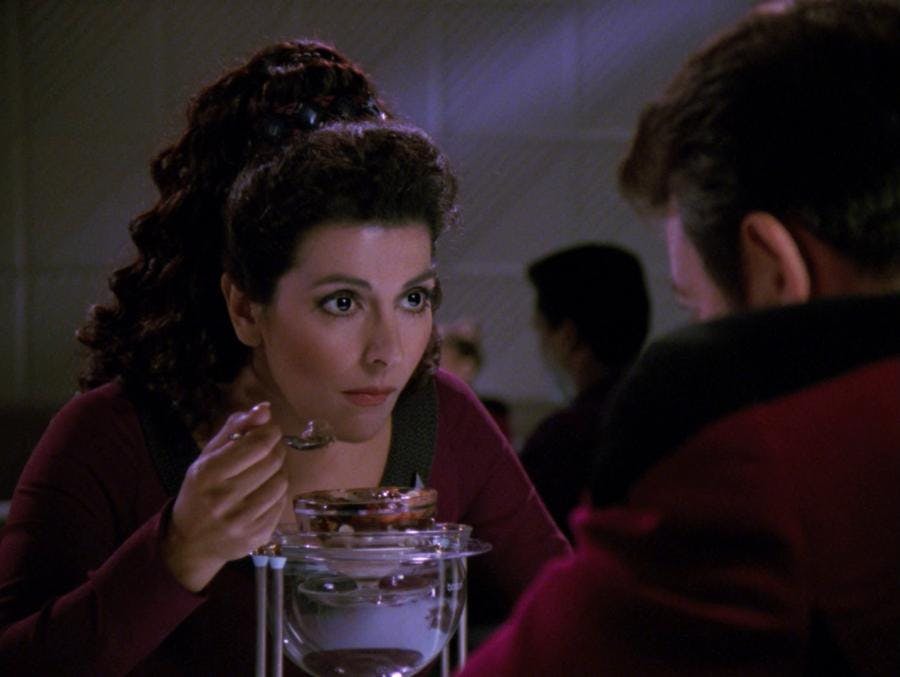
"The Game"
StarTrek.com
Growing up, I spoke Greek and English interchangeably with my family. And sure, I’d heard tales of the "old country" and visited Greece almost every summer, but I didn’t really consider myself anything other than American. And yet, to everyone else, with my long, unpronounceable name and tendency to bring spanakopita to school for lunch, I was 100% Greek.
It was only when I actually moved to Greece years later, that I realized I didn’t quite belong there either. It was a strange predicament to be in. I felt as though everyone wanted to label me as one thing or another, and depending on where I was in my life, the answer would change. Reconciling where I fit in at any given time was one of the most challenging things I faced growing up. Throughout all of this, there was one character with whom I could identify — one character who seemed to be at the same crossroads as I, and that was Deanna Troi. Her cross-cultural heritage and the juxtaposition of both cultures influencing her seemed very familiar.
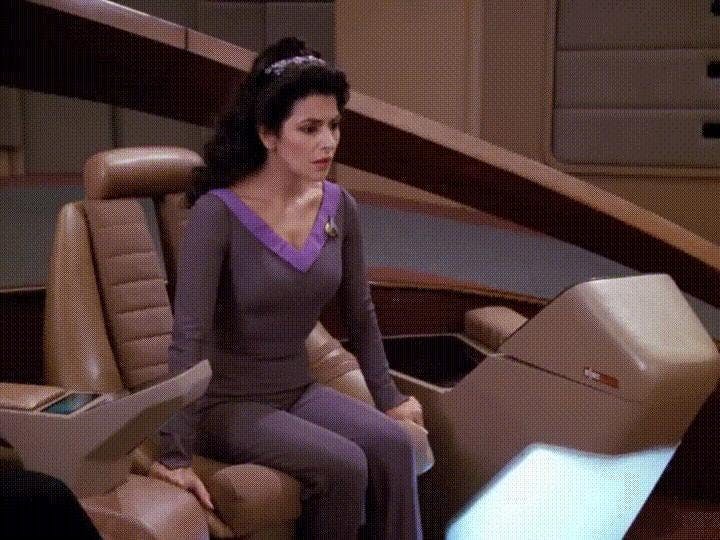
"The Loss"
StarTrek.com
Ship’s counselor Deanna Troi hailed from two distinct worlds — Betazed and Earth. She utilized her Betazoid abilities as an empath, both personally and professionally, and yet, her mannerisms, pursuits, and hobbies all seemed decidedly human. What appealed to me about her character was that, in a sense, Deanna was in a similar situation as I was — at the intersection of two very distinct cultures, and yet she catered to both sides, always embracing aspects of each, never holding one above the other. It was an acceptance and fluidity that I greatly admired.
As half-Betazoid, growing up on Betazed, Deanna was undoubtedly heavily influenced by the culture of her mother, given that her human father died when she was young. Physically, her empathic gifts stem from this side. Throughout her life, she never shies from using these abilities. In fact, when she loses them, it’s devastating; feeling as though she’s lost a part of herself (""). We only see slight hesitation when communicating telepathically with her mother onboard the Enterprise, preferring instead to speak out loud in order to put her crewmates at ease.
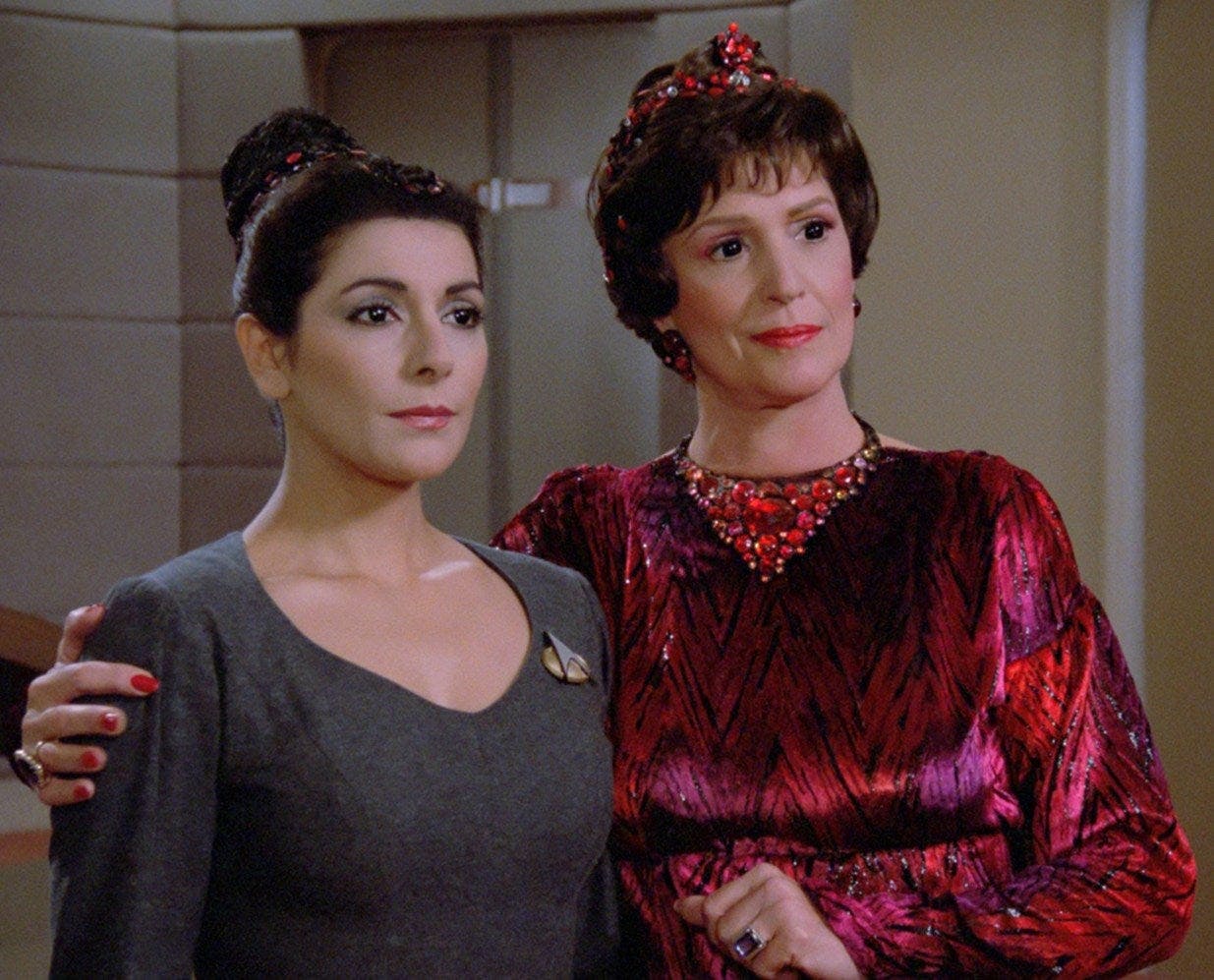
"Haven"
StarTrek.com
In a sense, her mother Lwaxana Troi is symbolic of Deanna’s Betazoid side. She wears traditional Betazoid attire, stubbornly prefers telepathy — oftentimes making non-telepaths uncomfortable, namely Captain Picard. At any given chance, Lwaxana upholds Betazoid customs (even if they’re a tad difficult for non-Betazoids to handle, like showing up to her wedding without clothing). In many ways, Lwaxana reminds me of my own relatives — stubborn, traditional, and outspoken, oftentimes observing time-old practices that just didn’t make sense to my non-Greek friends (the time I had to bring garlic cloves with me to an awards ceremony at school so I wouldn’t get the evil eye is one for the books). Yet in the end, Lwaxana’s influence and the Betazoid culture are distinct, prominent parts of Deanna’s personality and background. She never shies away from either, always choosing acceptance, despite the circumstances.
Deanna also had to juggle the part of her that is distinctly human. While she spent her childhood on Betazed, most of her adult life took place among humans and other humanoids on a Federation ship. Many of her pursuits onboard the Enterprise-D lean towards her human side, including late-night poker sessions, workouts with Beverly, and her affinity for non-Betazoid cuisine, namely chocolate. In her professional life, it’s a given that her empathic Betazoid abilities gave her a leg-up as ship’s counselor, but her drive and ambition, her hope and desire to reach everyone who came to her in need, I’d like to think that’s credited to her human side. We also see Deanna thrive in more leadership-related roles during her tenure, undoubtedly putting to use all her prior experience onboard a starship.
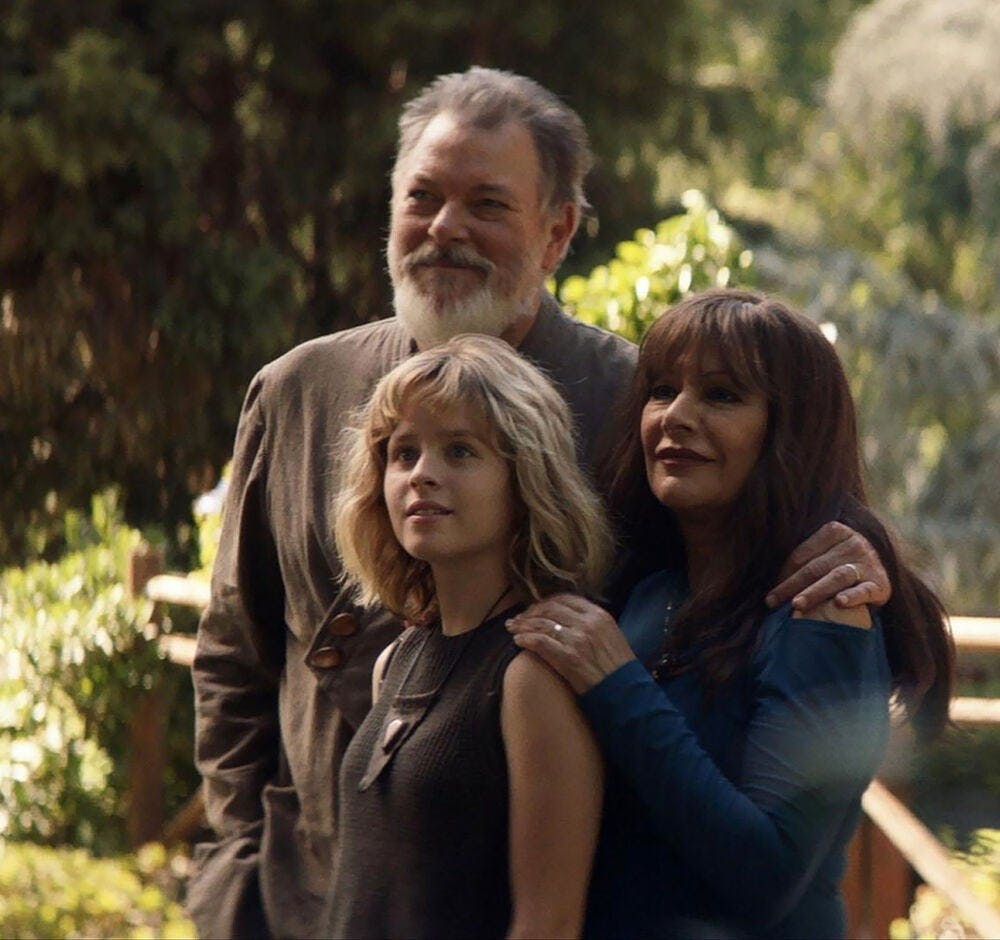
"Nepenthe"
StarTrek.com
Later on in life, when we visit her again in "," she’s wholeheartedly embraced family life and motherhood, and puts a unique, truly Deanna spin on it all, perhaps harkening back to the style her own parents used to raise her.
Ultimately, Deanna Troi shows us that we can embrace every part of ourselves, and that it’s those components that make us who we are as a whole. There’s no need to prefer one aspect of our background or culture, in favor of another. In fact, I’ve personally found that the pressure we sometimes put on ourselves can be greater than any external pressure we might face. The beauty of Star Trek and the fundamental acceptance of infinite diversity in infinite combinations implies that you take in with open arms, all the individual parts that make you unique.
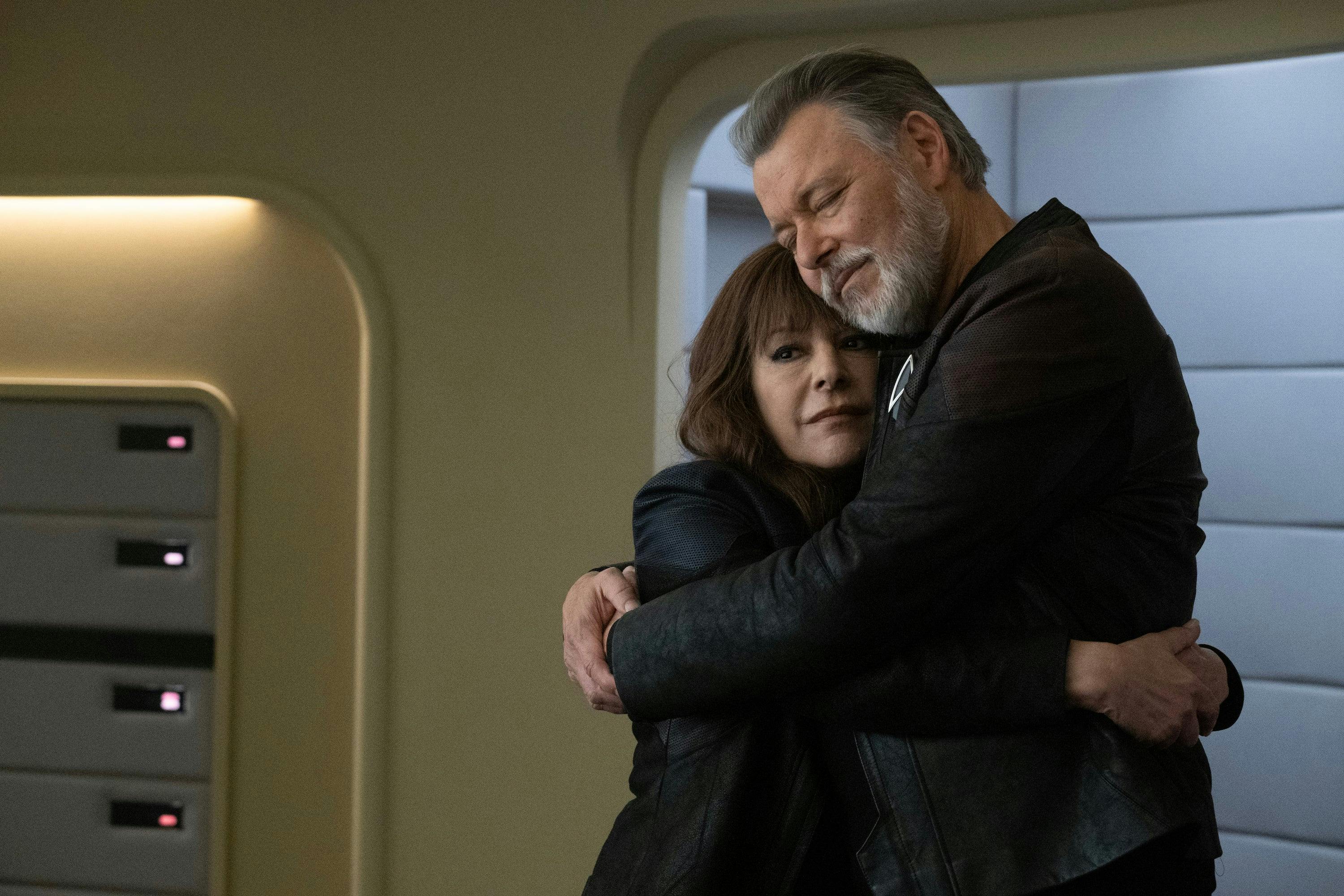
"The Last Generation"
StarTrek.com
There were many times in my life when I would conform for the benefit of one culture over another. I only realized later in life that I didn’t need to align myself with either my Greek or American side, and that it’s perfectly alright to proudly be a part of both and accept everything that’s special about each. Our favorite cross-cultural characters, like Worf, Michael Burnham, Spock, and Odo, mostly feel the pressure they put upon themselves — which is oftentimes greater than outside influence. Once we admit this, we can put the pieces of who we are together and move forward as a stronger whole.
Ultimately, I can’t think of a better quote to reference than Deanna’s own words, "Confidence is faith in oneself. It can't easily be given by another." And in a way, having faith in who you are, embracing all parts of your heritage and cultural composition, is what instills confidence and puts at the forefront the importance of accepting your own uniqueness.

